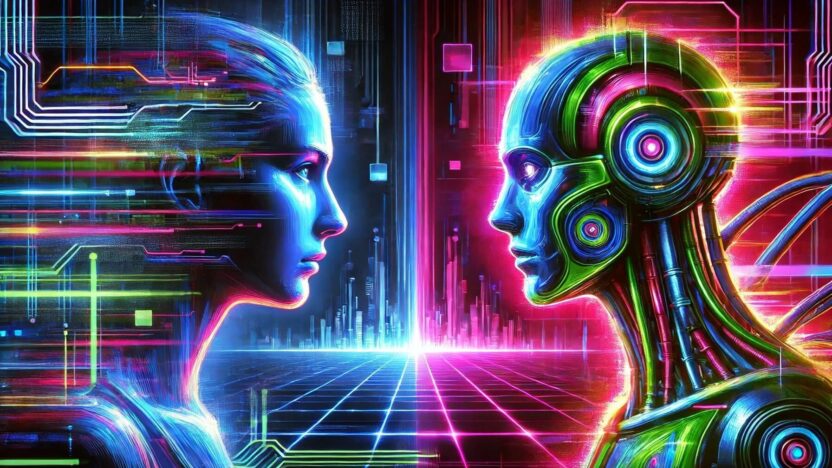As artificial intelligence (AI) rapidly integrates into nearly every sector of society—from healthcare and education to journalism, customer service, and creative arts—there is growing excitement about its potential to boost efficiency, reduce costs, and solve complex problems. But amid this technological optimism lies a quieter, more troubling question: What are we losing in the process?
While AI promises progress, it also brings with it unintended consequences that touch the core of what it means to be human. From job displacement and erosion of skills to loss of empathy and cultural depth, the transition to an AI-driven world comes with real trade-offs.
1. Human Jobs – And More Than Just Entry-Level Roles
The most visible cost of AI adoption is job displacement. Companies increasingly turn to AI tools to automate repetitive or even cognitive tasks once performed by humans. Customer support agents, writers, marketers, data analysts, and even software developers are being replaced or sidelined as AI systems become capable of performing similar functions.
Klarna, the Swedish fintech company, famously replaced 700 customer service employees with AI in 2023, claiming massive cost savings. However, within two years, the company reversed course, realizing that AI couldn’t replicate the nuanced understanding and emotional intelligence required for high-quality customer interaction.
This illustrates a broader truth: while AI may not replace all jobs entirely, it can redefine them, often devaluing the human element. Even high-skill professions are not immune. Doctors using AI for diagnostics, journalists relying on AI-generated content, and teachers turning to AI tutors risk losing not just employment opportunities but also professional growth and expertise.
2. Loss of Human Touch and Emotional Intelligence
One of the most profound losses from over-reliance on AI is the erosion of empathy and emotional intelligence in key sectors like healthcare, education, and customer service.
In medicine, for instance, AI can diagnose diseases faster than many doctors. But diagnosis is only part of healing. Patients need reassurance, compassion, and personalized care—qualities that machines cannot replicate. When AI becomes the first point of contact in mental health services or elder care, the risk of depersonalization grows significantly.
Similarly, in customer service, AI chatbots offer quick responses but often fail to understand frustration, confusion, or urgency. Klarna’s experience shows that customers want to know there’s a real person available when things go wrong—a fundamental human need that AI cannot fully satisfy.
3. Cultural Creativity and Original Thought at Risk
Creativity has long been considered a uniquely human trait. Yet today, AI models generate music, write screenplays, design fashion, and produce visual art. While these tools can assist creators, they also threaten to homogenize culture by recycling existing ideas rather than generating truly original ones.
AI models learn from vast datasets of human-created content. This means their outputs are derivative by nature. As reliance on AI-generated content increases, we risk creating a feedback loop where creativity becomes less about innovation and more about recombination.
Worse still, artists, writers, and musicians who rely on originality to earn a living find themselves competing with AI systems trained on their work—often without consent or compensation. The result? A chilling effect on artistic expression and a potential decline in the richness and diversity of cultural output.
4. Skills Atrophy and Workforce Erosion
When AI systems take over tasks, humans lose the opportunity to practice and refine those skills. Over time, this leads to skill atrophy—not just among individuals, but across entire industries.
For example, if pilots rely too heavily on autopilot systems, their manual flying abilities degrade. In journalism, if reporters depend on AI to draft stories, their ability to investigate, analyze, and interpret news diminishes. In education, students using AI to write essays may never develop strong critical thinking or writing skills.
This creates a dangerous dependency. If AI systems fail—or if people forget how to function without them—the consequences can be severe. It also leaves future generations ill-prepared for roles that require deep understanding, adaptability, and judgment.
5. Ethical and Accountability Gaps
AI systems operate on algorithms trained by data, which can reflect biases present in society. When decisions are outsourced to AI—whether in hiring, policing, lending, or criminal sentencing—the lack of transparency and accountability becomes a major concern.
Who is responsible when an AI denies someone a loan, misdiagnoses a patient, or spreads misinformation? Often, no single person or entity takes ownership. This diffusion of responsibility can erode trust in institutions and technologies alike.
Moreover, AI lacks moral reasoning. It can optimize for efficiency or profit, but it doesn’t inherently prioritize fairness, justice, or human dignity. Left unchecked, AI can exacerbate inequality, reinforce harmful stereotypes, and undermine democratic processes.
6. Privacy and Autonomy Under Threat
AI thrives on data—our personal information, our habits, our preferences. As companies collect more data to train AI models, individual privacy comes under threat. Surveillance technologies powered by AI, facial recognition systems, and predictive analytics raise serious concerns about freedom, autonomy, and consent.
People are increasingly monitored, categorized, and influenced without their knowledge or approval. The very idea of personal agency is challenged when AI predicts our behavior before we act, nudging us toward choices that benefit corporations or governments rather than ourselves.
7. A World Less Human
Perhaps the greatest loss we face is the gradual replacement of human values with machine logic. Efficiency, optimization, and scale become the new metrics of success, often at the expense of meaning, connection, and purpose.
If schools teach students to think like machines, workplaces value productivity over well-being, and relationships are mediated through digital platforms, we risk creating a society that is technically advanced but emotionally impoverished.
We must ask: What kind of world do we want to build? One where humans serve machines, or one where technology serves humanity?
Conclusion: Balancing Progress with Humanity
Artificial intelligence is not inherently good or bad—it is a tool. Like any powerful tool, its impact depends on how we choose to use it. The challenge lies in ensuring that AI enhances rather than replaces human capabilities, enriches rather than diminishes our lives, and empowers rather than controls us.
To avoid losing what makes us human, we must set boundaries. We must invest in ethical AI development, protect workers’ rights, preserve spaces for human creativity and decision-making, and ensure that technology supports, rather than supplants, the human spirit.
The future doesn’t have to be a zero-sum game between humans and machines. But to preserve our values, our jobs, our culture, and our dignity, we must be deliberate, thoughtful, and vigilant about what we stand to lose—and what we must fight to keep.


